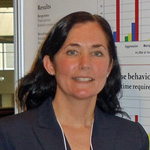Due to shame, fear and hopelessness, anyone caught in an abusive relationship finds it difficult to leave. But for lesbians, who already feel stigmatized, the barriers to seeking help are even greater.
“Therapists may hold stereotypes that intimate partner violence doesn’t occur in same-sex relationships between women, or that in the absence of physical violence, same-sex relationships do not include cycles of abuse,” says Dr. Amber Ault, a clinical sociologist and psychotherapist based in Madison, Wisconsin. “Women in same-sex relationships often hold the same beliefs.”
Plus, lesbians often worry about protecting the reputation of their community calling attention to dysfunction or violence may reinforce negative stereotypes. They fear that the legal system, dominated by majority groups, will not protect them. They’re afraid to alienate friends, family and community members, resulting in more isolation and danger than if they had remained silent.
“Emotionally abusive relationships in queer communities continue to be very low-profile for a host of social and psychological reasons,” says Dr. Ault. “And in the excitement about the legalization of same-sex marriage in the US, it may be more difficult than ever for members of our communities to seek help.”
Dr. Ault believes that those in the helping professions police, lawyers, doctors, therapists and clergy need to be aware of the patterns of victimization created by narcissists, psychopaths and other disordered individuals, and the ways that being in same-sex or queer relationships and communities changes the experience.
“When victims of toxic partners decide to reach out for help, we have a professional obligation to understand not only the abusive strategies of people with personality disorders, but also what it means for a person in a minority community to come forward, to seek help, and, possibly, to exit their relationship,” she says.
About Dr. Ault
Dr. Ault is author of “The Five Step Exit: Skills You Need to Leave a Narcissist, Psychopath, or Other Toxic Partner and Recover Your Happiness Now,” and “The Wise Lesbian Guide to Getting Free from Crazy-making Relationships.” She works with clients across the US and internationally to help them make sense of toxic relationship dynamics and to move into lives that are happy, abundant, and joyful.
“Minority victims of toxic partners, like all victims, deserve to know that competent help is available when they take the important step to seek help, despite the barriers of shame, fear, and hopelessness.” she says.

 Helping children overcome genetic risk for externalizing disorders
Helping children overcome genetic risk for externalizing disorders